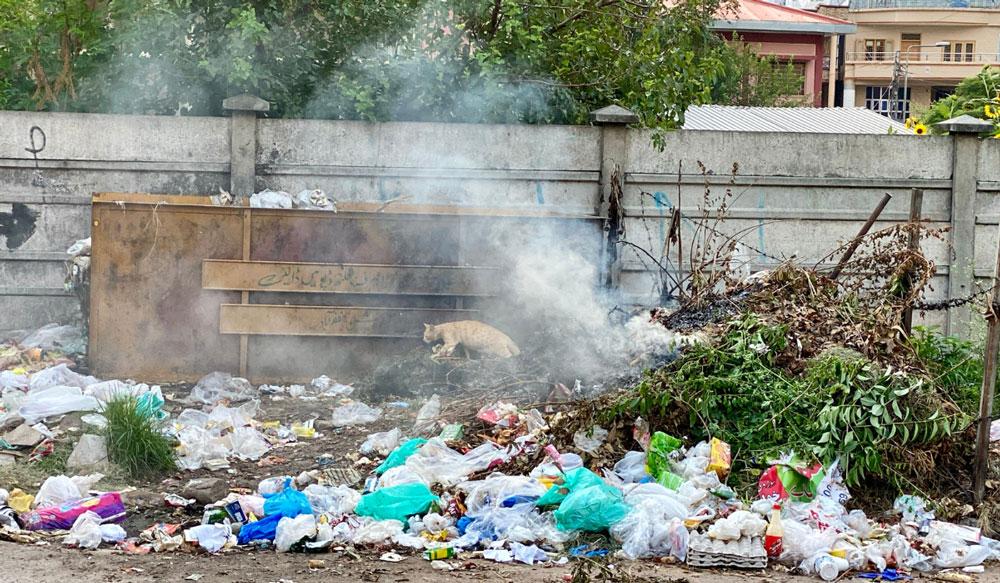
New research shows that the residents of Dhaka are worried about the growing levels of air and plastic pollution in the capital city, as their health and finances suffer the consequences. In the first study of its kind in Bangladesh, the Green Cities Initiative at the Centre for Policy Dialogue surveyed 500 households in Dhaka. Most residents reported experiencing negative health consequences related to air pollution in the city, with the average person spending BDT 4,000 to treat their symptoms attributed to air pollution.
Our survey found that three quarters of residents believed air and plastic pollution had become “much worse” in the city in the past 2-3 years. This is a perception that aligns with the scientific data we have. In the case of air pollution, data from the air quality index shows that air quality in Dhaka has worsened by 13 per cent between 2019 and 2022, while per capita plastic consumption has more than doubled between 2005 and 2020.
Despite high levels of concern, Dhaka residents are not necessarily taking measures to reduce their own contributions to pollution in the city, largely due to a lack of environmentally friendly alternatives that could change their habits.
It is clear to anyone who has spent time in Dhaka that traffic is a huge problem for the city, as well as the pollutants which vehicles emit during congestions on the roads. Dhaka residents reported spending 46 minutes stuck in traffic for every two hours spent outdoors. So, it is perhaps unsurprising that the majority of residents also believed vehicles to be the main source of pollutants in the air.
Most of the vehicle owners we surveyed were open to changing their habits to reduce their contribution to air pollution. Only 11 per cent of drivers said that no policy changes would make them drive less. By far the most popular option was improved public transportation facilities, as 46 per cent of vehicle owners said that they would use their vehicles less if other options for getting around the city were better.
Any improvements to public transport must, however, ensure that the facilities are appealing to all. The survey found that women and over-65-year-olds who owned a car or motorbike were significantly less likely than men and younger people to say that they would reduce their vehicle usage if public transport facilities were improved. By ensuring that adequate safety and accessibility measures are in place on public transport, investment in this area can have maximum impact.
Similarly, the survey also found that many residents relied on plastic products for their convenience and just 37 per cent practiced any kind of recycling, that too only for durable plastic products. Furthermore, at least 43 per cent of the respondents admitted to throwing away single-use plastic items indiscriminately onto the streets. The average resident acquired 17 new polythene bags per week, however only 15 per cent of them would be willing to pay for them if a charge on shopping bags was implemented. A well enforced ban on polythene bags and a charge on all other forms of shopping bags, combined with investment in recycling infrastructure has the potential to significantly change people’s behaviour and reduce the proliferation of plastic waste in the city.
However, we cannot rely solely on individual behaviour change to turn the tide on Dhaka’s pollution problems. Industries also need to take responsibilities.
Contrary to the belief of residents that took part in this survey, vehicles are not the main source of the dangerous particulate matter that pollutes Dhaka’s air. Brick kilns are the most significant contributor, responsible for 58 per cent of the city’s total particulate matter pollution. Fixed chimney brick kilns are the most rudimentary, most polluting and unfortunately most common form of brick kilns in Bangladesh. Therefore, to tackle air pollution, the government should pass a regulation to phase out this type of kiln by the end of 2028, shifting all brick manufacturing to less polluting technologies. In the field of plastics too, a framework of Extended Producer Responsibility would put the burden on manufacturers to reduce the negative environmental impact of their products and ensure that they are recycled appropriately.
Shifting attitudes are a key part of the challenge when it comes to tackling pollution; now people need the tools to act on their concerns and make better, more environment-friendly choices. However, with so much pollution coming from industry, the government will also need to work with the private and informal sectors and share the responsibility to clean up Bangladesh’s cities.
- Fahmida Khatun is the Executive Director of the Centre for Policy Dialogue.
- Syed Yusuf Saadat is a Research Fellow at the Centre for Policy Dialogue.
- Afrin Mahbub is a Programme Associate (Research) at the Centre for Policy Dialogue.
- Marium Binte Islam is a Research Associate at the Centre for Policy Dialogue.


